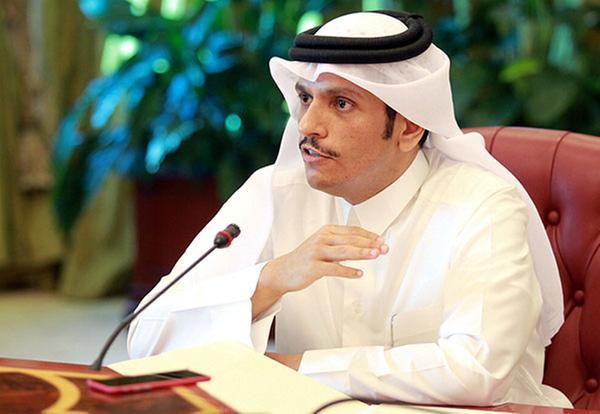Arab states expand list of Qatar-linked 'terrorist' groups
China Daily | Updated: 2017-06-10 07:15
|
Qatari Foreign Minister Sheikh Mohammed bin Abdulrahman al-Thani speaks to reporters in Doha, Qatar, on Thursday. Naseem Zeitoon / Reuters |
DUBAI/DOHA - Four Arab states that cut ties with Qatar this week over its alleged support of terrorism on Friday designated dozens of groups and individuals with alleged links to Qatar as "terrorists" - intensifying a rift that threatens the region's stability.
Saudi Arabia, the United Arab Emirates, Egypt and Bahrain branded as terrorists 59 people, including Muslim Brotherhood spiritual leader Yousef al-Qaradawi.
Their joint statement also listed 12 entities, among them Qatari-funded charities Qatar Charity and Eid Charity, as having terrorist links.
The announcement intensifies the diplomatic and economic campaign to isolate Qatar, a small Gulf Arab state which is a critical global supplier of gas and hosts the largest US military base in the Middle East.
Saudi Arabia and the UAE listed scores of organizations in a 2014 spat with Qatar.
Qatar dismissed the latest move by its neighbors, saying it "reinforces baseless allegations that hold no foundation in fact".
"Our position on countering terrorism is stronger than many of the signatories of the joint statement - a fact that has been conveniently ignored by the authors," the Qatari government said in a statement.
Qatar said it leads the region in attacking what it called "the roots of terrorism" by giving young people hope through jobs, educating hundreds of thousands of Syrian refugees and providing funding for community programs to challenge extremist agendas.
The four Arab states severed relations with Qatar on Monday, accusing it of supporting extremists and their arch-adversary Iran - charges Qatar rejects. Several other countries later followed suit.
Meanwhile, on the sidelines of a regional security summit in Kazakhstan, China's Foreign Minister Wang Yi told his Iranian counterpart Mohammad Javad Zarif that maintaining peace and stability in the Gulf is in the best interests of all concerned parties.
Wang said Beijing hopes relevant countries can appropriately resolve the dispute, adding that peace and stability in the Gulf accords with the common interests of both the region and the international community.
Other would-be mediators, including US President Donald Trump and Kuwait's ruling emir, have struggled to ease a crisis that Qataris said has led to a blockade of their nation.
Meanwhile, Turkish President Tayyip Erdogan has approved legislation on deploying troops in Qatar, signaling support for Doha in the region's greatest diplomatic crisis in years.
Erdogan, who has long tried to play the role of regional power broker, has said isolating Qatar would not resolve any problems and that Ankara would do everything in its power to help end the regional crisis and "will continue and develop" ties with Doha.
Reuters - China Daily - Xinhua

























